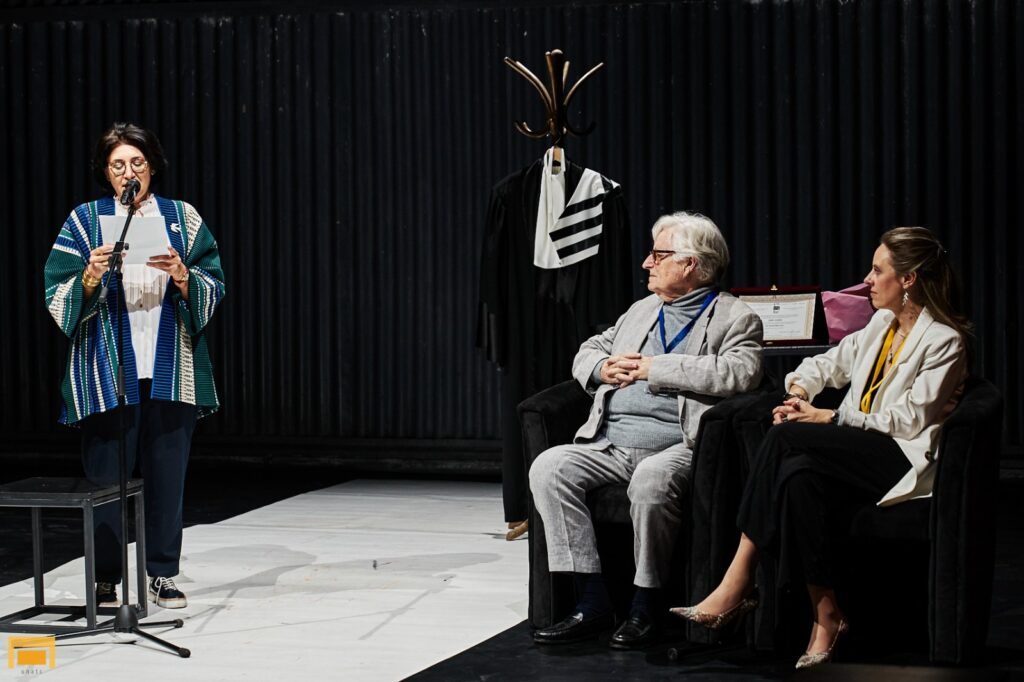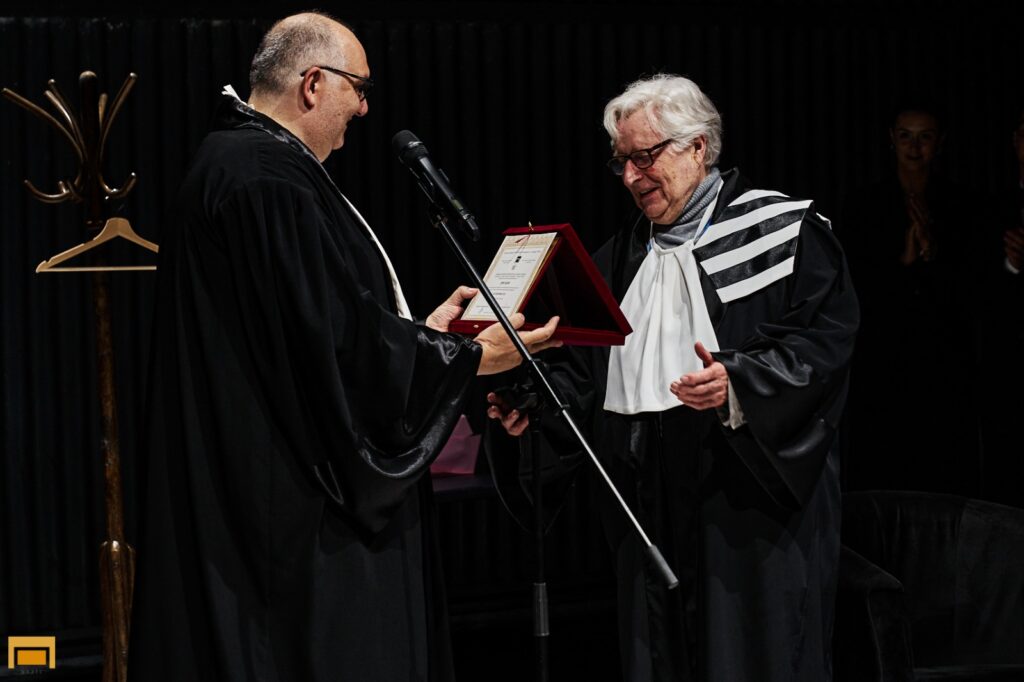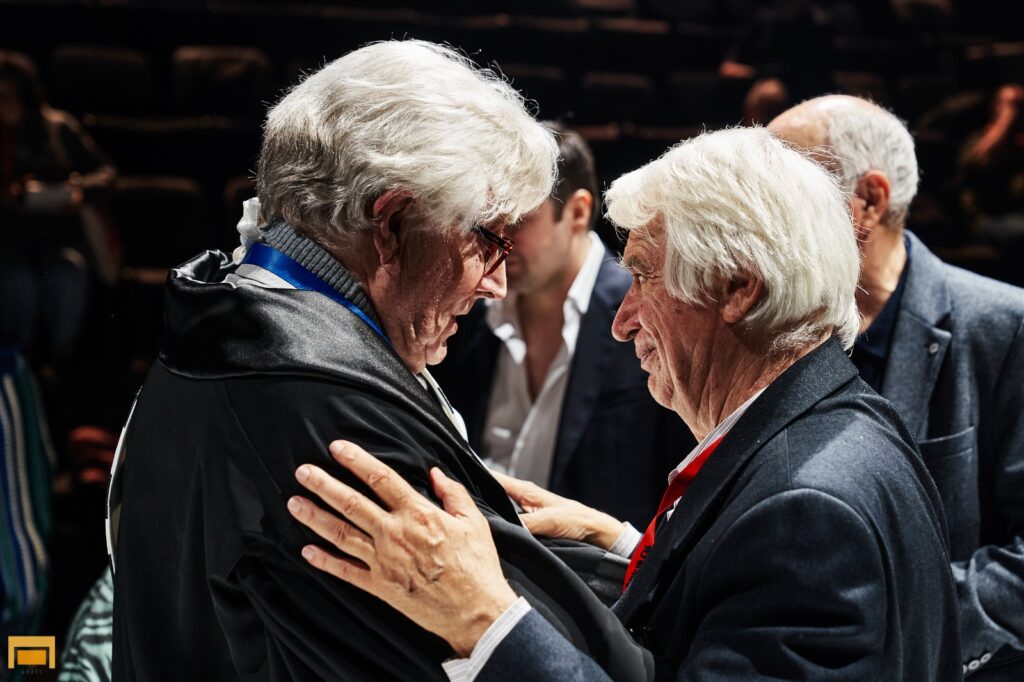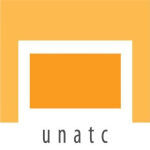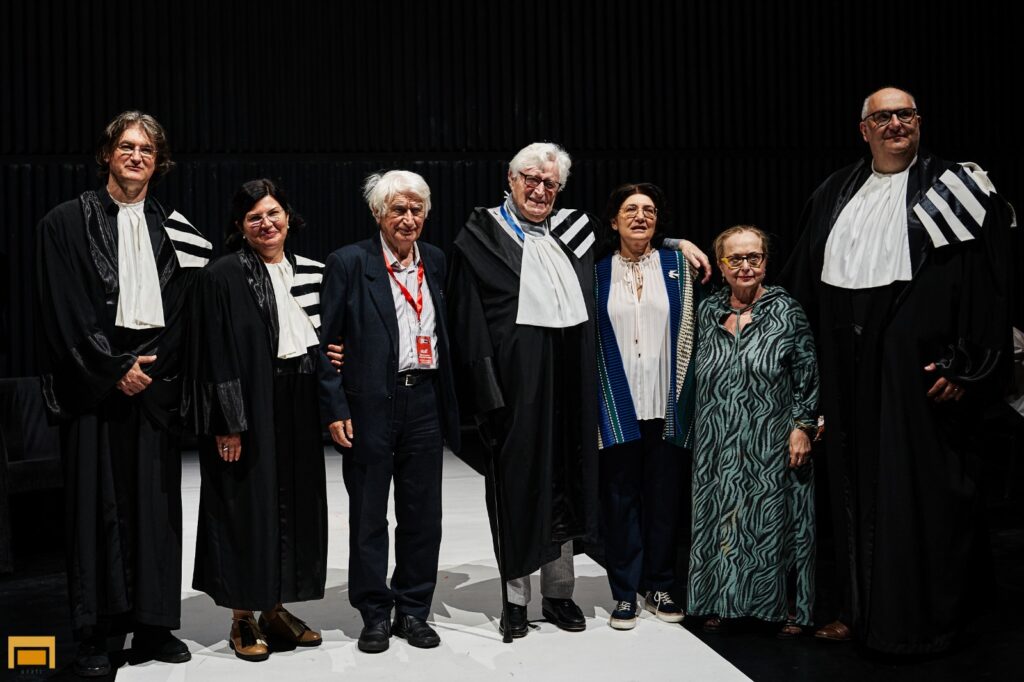
Pe data de 19 mai 2024, în cadrul Festivalului Internațional Shakespeare Craiova, a avut loc ceremonia de acordare a titlului de DOCTOR HONORIS CAUSA din partea Universității Naționale de Artă Teatrală și Cinematografică „I. L. Caragiale” București către Dr. John Elsom, critic și teoretician de teatru, dramaturg, autor și jurnalist britanic.
Laudatio a fost scris și citit de conf. univ. dr. Anca Ioniță, șefa Departamentului de Studii Teatrale, din cadrul Facultății de Teatru, UNATC.
La ceremonie au participat rectorul UNATC, Liviu Lucaci, membrii Senatului UNATC (președintele prof.univ.dr. Doru Nițescu și membrii: prof.univ.dr. Bogdana-Adina Crețu, prof.univ.dr. Liviu Lucaci, prof.univ.dr. Mihaela Sîrbu, prof.univ.dr. Alexandru Sterian, conf.univ.dr. Radu Mircea Apostol, conf.univ.dr. Mihaela Bețiu, conf.univ.dr. Anca Bradu, conf.univ.dr. Ștefan Caragiu, conf.univ.dr. Andrei Gorzo, conf.univ.dr. Anca Ioniță, lect.univ.dr. Andrei Rus, conf.univ.dr. Daniel Stanciu, lect.univ.dr. Romina Boldașu, lect.univ.dr. Vlad Ioachimescu, lect.univ.dr. Bogdan Mustață, lect.univ.dr. Gabriela Suciu-Pădurețu), invitați internaționali și studenți ai universității.
LAUDATIO
On The Occasion of Bestowing the Title of Doctor Honoris Causa of National University of Theatre and Film „Ion Luca Caragiale”
To
Dr. John Elsom
Distinguished members of the Senate,
Mr. Rector
Distinguished guests, dear students, and friends,
Ladies and Gentlemen,
Today we are celebrating a Renaissance Man of our times. Academic, scholar, author, playwright, theatre critic, journalist, manager and politician of arts, dr. John Elsom is more and foremost a conscious in action, activating at a world scale the power of theatre and culture.
I have the privilege and the extraordinarily difficult task to convey in a few words the overwhelming life achievements of a thinker and practician of arts and culture, “…the voice of sanity in a deluded world.”, as John Pick, Emeritus Professor at Gresham College in London describes him.
Born in 1934 in Essex, England, he won a State Scholarship and an Exhibition in History to Magdalene College, Cambridge, where he studied English Literature. The intellectual influences he acknowledges are C.S. Lewis – professor of English Literature and one of the intellectual giants of the 20th century and F.R. Leavis – influential literary theoretician, constant critic of destructive influence of mass culture, and commercial values on authentic culture.
After leaving university, he became a writer, working as a free-lance journalist, an author, and a playwright. During the 1960s was the regular theatre critic for London Magazine, London’s leading cultural magazine, founded in 1732. He joined The Observer and then the BBC’s The Listener as a theatre critic, contributing and presenting arts programmes for the BBC and LBC in London. He was an arts editor for the US magazine, The World and I, and a theatre correspondent, script reader and talent scout for Paramount Pictures.
His extensive journalistic work has been a constant of his over 60-year career in the service of arts and culture. Besides journalism, John Elsom’s work includes many books, an opera libretto, plays. “When my love says she is made of truth, I do believe her, although I know she lies…”, Quoting one of Shakespeare’s sonnets, John Elsom praises his poetry for being direct and simple. A quality which we can find in all of his writings.
Constantly present and involved in the development of theatre and performing arts, he wrote about the past and predicted the future. Among his most important book titles we mention:
- The History of the National Theatre (with Nicholas Tomalin) (Cape, 1978) “provocative, sincere and even idealistic” Sunday Telegraph
- Post-War British Theatre (Routledge, 1976, 1980) “Probably the best book available on this intricate and intriguing subject” Sunday Times
- Post-war British Theatre Criticism (Routledge, Ed. 1981) “an obsessively interesting book” Antonia Fraser, PEN, Spring, 1981
- Cold War Theater (Routledge, 1992)
- And last, but not least Missing the Point. The Rise of High Modernity and the Decline of Everything Else (Lutterworth, 2007) “A stimulating, challenging book that no one with the slightest interest in politics, arts or the media can afford to miss” Anthony Howard
In 1991 he received a PhD in Arts Policy and Management from City University, in London. He was one of the first to bring to the governments’ attention the economic and business potential of creative industries. An international authority on arts policy and cultural management, founder, and director of Arts Interlink, the international arts management consultancy, John Elsom won in 2008 the Award of International Outstanding Contribution to the Creative Industry of China during the 3rd China Creative Industry Awards ceremony in Beijing.
A man of ideas and leadership, founder of cultural organisations, companies, NGOs in the arts, John Elsom is an emulator and a pioneer, connecting people under the unifying banner of theatre and culture organisations. For him, theatre and Shakespeare, in particular, is the magic and powerful human invention which can transgress all borders – geographical, cultural, political, and intellectual. He is the first to have written and presented an arts programme from the former Soviet Union in 1984/5, at the start of glasnost and perestroika.
His visionary work as the President of the International Theatre Critics Association between 1985 – 1992 lifted the Iron Curtain and brought together a politically divided Europe, under the unifying banner of theatre. A cultural ambassador of the Eastern European theatre, he chaired in this capacity more than 50 international conferences, bringing together critics, scholars, journalists, actors, playwrights, directors from West and East.
In October 1986, in his capacity of President of International Association of Theatre Critics organised a public conference at London’s Young Vic Theatre on the theme “Is Shakespeare
Still Our Contemporary?”, to mark the 25 years anniversary of the publication of Jan Kott’s influential and controversial book. “One purpose of this meeting was to consider how far words like ‘universal’ or ‘contemporary’ can be sensibly applied to Shakespeare’s plays, using ourselves as test cases. It was as much about our perceptions of Shakespeare as about the canon of the man himself; and we did not seek to be theoretical in our approach.”
The eight international debates were edited and gathered by Elsom in a volume titled Is Shakespeare Still Our Contemporary? and published three years later, in the revolutionary year of 1989. It could have never been timelier than that! Elsom envisaged a fundamental change no politician could have predicted with such accuracy! The book, translated also in Romanian in 1994 by Dan Duțescu, is today one of the most well-known titles across the world, which “every library should possess a copy”, as stated in one of its reviews.
In the introduction of the volume, the editor John Elsom writes: “If it could somehow be proved that one man’s plays really had overcome the barriers of language, race, creed and custom, as well as time, if it could be demonstrated that the proclaimed ‘universality’ of Shakespeare was something more than a poetic licence on the part of the enthusiasts, then we might not have added much to the libraries of Shakespearian criticism, but we would have gained a valuable insight into the cultural software that drives our computers.” What a powerful image! Indeed, for John Elsom arts and culture are not products of human activity, but the very essence / quintessence of humankind.
John Elsom has a long and constant connection to Romania. He was the guest of honour of the fourth edition of Shakespeare International Theatre Festival – Craiova 2003 and a constant and active presence of the festival, since. In the same year, he was decorated by the Romanian President, Ion Iliescu, for his services to culture during the Cold War. Some of his plays were also staged in Romania such as The Well-Intentioned Builder (1968, Cockpit, revived in 2004 for National Theatre of Craiova): “It’s hard to imagine how a text written in 1968 could be so present in 2004… firm and complex in its simplicity.”
One of John Elsom’s major achievements is to have raised culture at the level of state affairs, showing governments how important it is to have a cultural strategy, next to a social and economic one. In 1978 – as chair of Arts and Brodcasting Committe (1977-1988) of UK’s third party, the Nation Liberal, he first proposed a British ministry of culture. His 1992 book Notes and Queries Cold War Theatre (published at Routledge) is described by Jana Smatlokova in Kultirny Zivot magazine as “an exciting and illuminating reading, striking at the very heart of the existence of culture and the theatre”.
In a recent article published in 2021 in the IATC journal Critical Stages, he addresses many issues of the politics of culture in the post 2020 world metaphorically described by its title: “The Night Before Christmas”. Among them, the visionary idea of culture as a natural resource: “We should think of culture, as we do the environment, more as a natural resource, than in terms of products, trades and institutions.” A world crusader of theatre, arts and culture, no aspect of their powerful impact on individual and societal life of the polis remains unchartered by him.
In the same article he addresses, what seems to me one of the most important debates of this moment – political correctness and the fundamental confusion produced by it on the very meaning of the word Culture: “What is meant by ‘culture.’ In the U.K., the word can be applied narrowly to “the arts” or broadly in such phrases as “street” or “Chinese” culture. These extremes have their political dimensions. Right-wingers usually apply the word “culture” to the “high arts,” as opposed to “entertainment.” Opera is “culture”: rock’n’roll is not. Left-wingers are inclined to embrace “high” and “low” cultures but can be pernickety when it comes to social content. Can “racist” literature be considered “cultural”? Culture must be defined in a different way. It is not just a leisure activity, but the way in which we are learning how to think. … It is in our powers to share and communicate and open out the prospect of a true cultural revolution, more open, global, and democratic than in the past.”
For his outstanding endeavours in promoting theatre and cultural values all across the world, for the remarkable accomplishments of a life dedicated to making culture a state policy and government priority, for his undaunted engagement in the service of truth, reason and freedom of thought, the Senate of National University of Theatre and Film “Ion Luca Caragiale” bestows the title DOCTOR HONORIS CAUSA to Dr. John Elsom, a citizen of world and our contemporary.
Conf. univ. dr. Anca Ioniță
May 19th, 2024
Craiova
